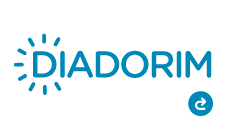Arte contemporânea
correntes mundiais em transição para além da globalização
DOI:
https://doi.org/10.35699/2238-2046..15710Keywords:
contemporary art, globalization, artAbstract
In this article, the author questions the use of terms such as “global art” and “world art”, and purposes to think about a condition of “contemporaneity”, that involves three big currents emerged after 1989: one derived from Euroamerican modern, one based in the Post-colonial criticism, and one independent, concerned with the tentative explorations of temporality, place, affiliation and affect, the uncertain conditions of living on a fragile planet.
References
BELTING, Hans; BUDDENSIEG, Andrea. Introduction. In: _____. The Global Contemporary, exhibition guide. ZKM Karlsruhe, 2011.
JAMESON, Fredric. The Seeds of Time. New York: Columbia University Press, 2004.
HUGHES, Robert. Nothing If Not Critical: Selected Essays on Art and Artists. London: Harvill, 1990.
ROSE, Gideon. Making Modernity Work: The Reconciliation of Capitalism and Democracy. In: ROSE, Gideon; TEPPERMAN, Jonathan (eds.). The Clash of Ideas. New York: Foreign Affairs, 2012.
SPIVAK, Gayatri Chakravorty. Death of a Discipline. New York: Columbia University Press, 2003.
Downloads
Published
Issue
Section
License
Copyright (c) 2017 Terry Smith

This work is licensed under a Creative Commons Attribution-NonCommercial 4.0 International License.
Authors who publish in this journal agree to the following terms:
- Authors retain copyright and grant the journal the right of first publication, with the work simultaneously licensed under the a Creative Commons Attribution-NonCommercial 4.0 International License that permits sharing of the work with acknowledgement of authorship and initial publication in this journal;
- Authors are permitted to enter into additional contracts separately, for non-exclusive distribution of the version of the work published in this journal (e.g., the Creative Commons Attribution License).
- Authors are permitted and encouraged to publish and distribute their work online (e.g., in institutional repositories or on their home page) at any point before or during the editorial process, as this may generate productive changes as well as increase the impact and citation of the published work.
- It is the responsibility of the authors to obtain written permission to use in their articles materials protected by copyright law. Revista PÓS is not responsible for copyright breaches made by its contributors.












